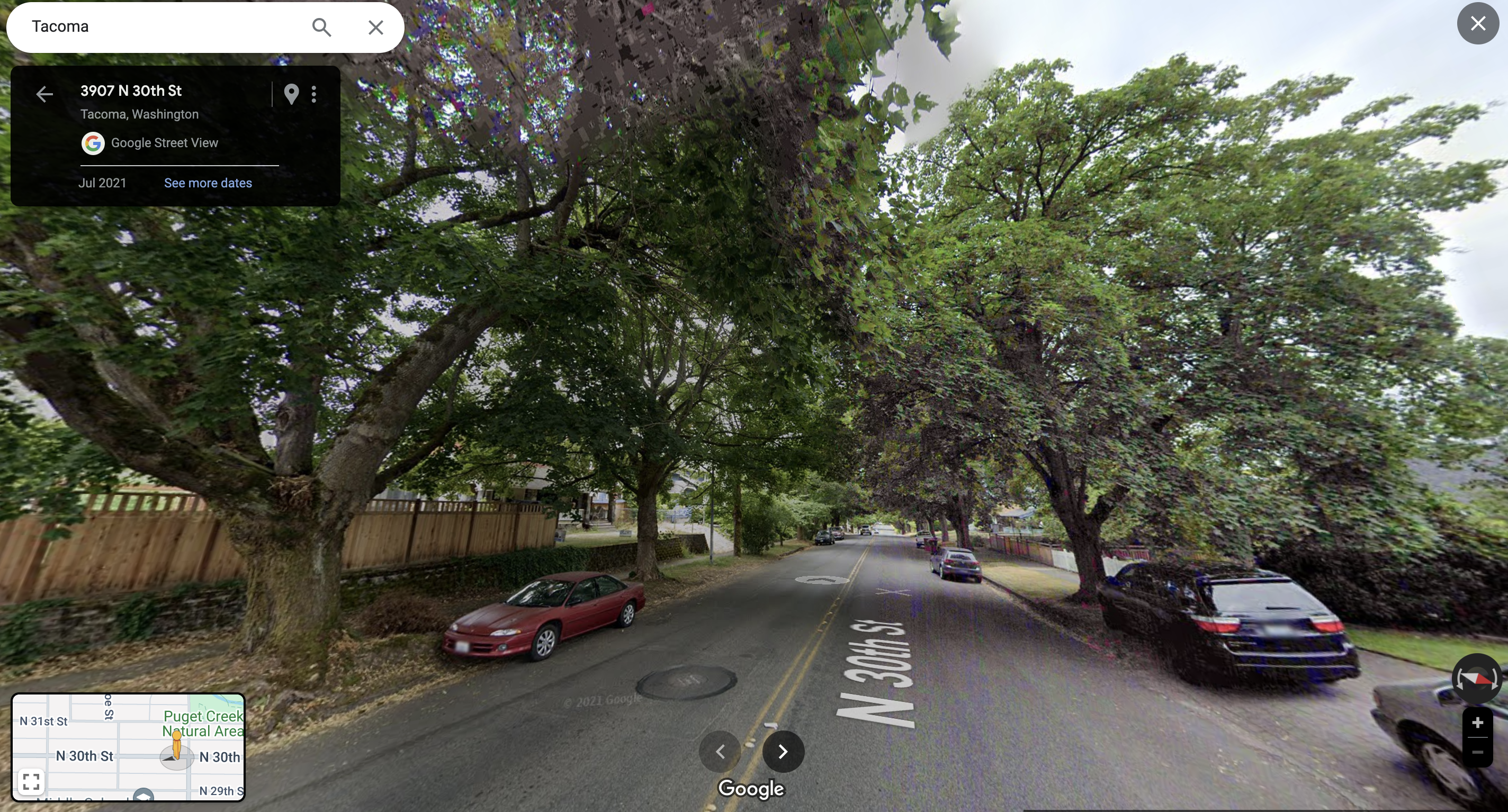It’s tough being a landlord in Seattle these days, especially for mom-and-pop landlords who don’t deal with housing laws every day.
In this article, we we provide an overview of Seattle rental housing laws. It’s important to understand where Seattle’s sit in the legal hierarchy. Washington State landlord-tenant laws take priority and local municipalities like Seattle can add their own tenant-protections on top of the Washington state baseline rules. Therefore, as a Seattle landlord, it’s also important to understand how Washington State landlord-tenant laws work. After reading this article, check out our guide to evicting tenants in Washington State.
Rental inspections
At the time of writing, Seattle is one of just three Washington jurisdictions with routine rental inspections (the others are Lakewood and Tukwila). We wont get into the details of registration process in this article, so we recommend landlords check out this explainer that the City of Seattle has published.
One important thing to note: Registration is very important. If you fail to register your unit with the Seattle Department of Construction and Inspections, you can’t evict your tenant. MRSC 22.205.010.
This law can be a big hurdle for smaller landlords who need to evict a tenant but never realized they needed to register their units with the City (this is becoming less common, since the law went into effect in 2014). This law can also complicate evictions when the unit was created illegally (e.g., an unpermitted accessory dwelling unit).
Tenant information packet
Seattle requires that landlords issue each tenant a copy of the “Renter’s Handbook,” which is basically a primer on Seattle landlord-tenant law. It’s actually a very informative read, and we recommend all Seattle landlords check it out.
Seattle landlords must distribute the Renter’s Handbook packet at the same time as the lease agreement. Landlords must also distribute the Renter’s Handbook annually to tenants with month-to-month tenancies. MRSC 7.24.080.
The landlord must offer a lease renewal
It seems that Seattle isn’t a fan of month-to-month leases. Rather than allowing term tenancies to go month-to-month at the end of the term, Seattle landlords must offer each tenant a “new tenancy” at the end of their lease. Weirdly, the law doesn’t clarify how long this “new tenancy” needs to be. The law also states that the new lease must be offered under “reasonable terms,” which is perhaps the vaguest possible legal standard.
The law also neglects to address the situation where the tenant starts out month-to-month in the first place. Presumably the law doesn’t apply in that case.
As far as timing is concerned, landlords must serve the lease renewal notice 60-90 days prior to the end of the lease term. The notice must allow the tenant at least 30 days to decide whether to renew.
A landlord does not have to offer the tenant a new lease if the tenant has committed a violation or the landlord has another reason that would constitute “just cause” to evict. However, even if the landlord has a “just cause,” the landlord must notify the tenant of their intention not to renew 60-90 days prior to the end of the lease. SMC 7.24. 030.J
No discriminating against criminals or sexual offenders
Landlords cannot discriminate against tenants on the basis of their criminal record, even for sex offender-based status.
Tenant screening
Seattle has a unique “first-in-time” law that is intended to provide all tenants an equal opportunity at housing, regardless of their demographics. RCW 14.08.050. Equality is, of course, a very worthy goal. However, we question the efficacy of Seattle’s implementation.
The law operates by requiring landlords to provide potential tenants with a comprehensive set of screening criteria prior to accepting the potential tenant’s application. The landlord must accept any tenant who meets the screening criteria once the potential tenant has submitted a complete application. This should, theoretically, prevent a landlord from discriminating against tenants by inventing new criteria to justify not accepting the tenant.
However, this law doesn’t work in practice for several reasons. First, there doesn’t appear to be any prohibition against a landlord imposing inherently subjective criteria, like “the tenant must be gainfully employed,” or “the tenant must be of good moral character.” What constitutes “gainful?” What constitutes “good moral character?”
Additionally, many landlords require an in-person showing prior to accepting applications. Ads will typically state something like, “no applications accepted until the potential tenant has toured the property by appointment.” Therefore, the landlord gets a chance to meet and personally vet the tenant before accepting an application. If the landlord wanted to discriminate, there’s nothing in this law that would stop a landlord from simply refuse to accept applications from people of certain demographic.
Obviously, we’re not suggesting landlords should discriminate. Instead, we’re suggesting that this law adds complexity without really preventing discrimination.
Just cause eviction
Since 2008, Seattle landlords have been unable to evict a tenant unless they have a “just cause” to do so under MRSC Chapter 22.205.010. In 2021, Washington State essentially duplicated Seattle’s “just cause” eviction law statewide under RCW 59.18.650. The Washington State law is so similar to the Seattle law that the Seattle law is largely redundant.
Landlords can’t raise rent to circumvent the just cause eviction rules
MRSC 22.210.136 expressly states
Winter eviction ban
This is a weird one. Seattle landlords are, for the most part, prohibited from evicting tenants from December 1-March 1 each year under MRSC 22.205.080. This is ostensibly to prevent evicting tenants during the cold winter months, but it has the undesirable effect of allowing nonpaying tenants to steal up to three additional months of rent from their landlords.
There are a lot of exceptions to this ban, including (but not limited to) the following:
• The ban only applies if the landlord owns five or fewer rental units in Seattle
• The ban only applies to tenants who qualify as low-moderate income under MRSC 23.84A.016;
• A landlord may terminate a month-to-month tenancy
• The landlord issues 90 days of notice for:
o Intent to reside in the rental
o Sell a single-family home
• The rental is a shared house and the landlord wishes to discontinue sharing it with the tenant
• The tenant creates a nuisance, operates an illegal business, or otherwise engages in illegal activity (this would probably also cover waste)
There is at least one potential loophole to the law. Technically, the ban only applies when the unit is: “owned by a person who owns more than four rental housing units.” What if one person owns several different LLCs that each own a house? The person has no ownership interest in the houses—that’s the entire point of an LLC. In turn, the LLCs each own less than five units. Therefore, the law arguably wouldn’t apply in this situation. That said, we wouldn’t recommend landlords rely on this loophole, since it has yet to be proven out in court.
School year eviction ban
This is another peculiar law. Under MRSC 22.205.110, Seattle landlords are prohibited from evicting school staff and families with school-aged children during the school year, which (at present) goes from September 14 – June 30. This eviction ban has the undesirable effect of allowing nonpaying tenants to steal up to nine and a half additional months of rent from their landlords before the landlord can commence an eviction.
There are, fortunately, some exceptions, including (but not limited to) the following:
• A landlord may terminate a month-to-month tenancy
• The landlord issues 90 days of notice for intent to reside in the rental
• The rental is a shared house and the landlord wishes to discontinue sharing it with the tenant
• The tenant creates a nuisance, operates an illegal business, or otherwise engages in illegal activity (this would probably also cover waste)
The only potential loophole we can think of is to add “no tenants with school-related employment” to the screening criteria. We can’t think of an obvious way this would violate the law, since employment isn’t a protected class under any of the anti-discrimination laws we’re aware of. However, doing so might invite bad publicity and a creative lawsuit from a teacher’s interest group of fair housing advocacy group. Note also that adding screening criteria prohibiting families with children would definitely violate the Federal Fair Housing Act.
Relocation assistance
Landlords must pay relocation assistance to tenants who will be displaced by housing demolition, substantial rehabilitation or alteration, or change of use. Relocation assistance is provided by MRSC Chapter 22.210. Seattle has also published an informational sheet providing further details.
Additionally, landlords are also required to provide relocation assistance if their And if a low-income tenant decides to move in response to a rent increase of 10 percent or more, landlords will be obligated to provide them with “economic dislocation relocation assistance” equal to three months’ rent, thanks to another bill passed by the council on Monday.
Specific language required in every notice
Seattle landlords must include the following language in every notice within the first sentence:
RIGHT TO LEGAL COUNSEL: CITY LAW PROVIDES RENTERS WHO ARE UNABLE TO PAY FOR AN ATTORNEY THE RIGHT TO FREE LEGAL REPRESENTATION IN AN EVICTION LAWSUIT. If you need help understanding this notice or information about your renter rights, call the Renting in Seattle Helpline at (206) 684-5700 or visit the web site at www.seattle.gov/rentinginseattle.
You can read more about how to include this language in this information sheet.
180-day rent increase notice
MRSC 22.210.136 expressly states
Concluding thoughts
Seattle’s landlord-tenant laws are among the most restrictive in the entire United States. Honestly, it’s hard to imagine how Seattle could make its laws any worse for landlords without violating a state or federal protection. Rent control is, mercifully, banned by state law (at least for now), or else Seattle certainly would have imposed it by now.
As small landlords ourselves, we can’t imagine that being a mom-and-pop landlord in Seattle is economically worth the hassle and legal risk. By making it difficult to be a landlord, Seattle is adding costs for landlords. Since renting property is a business, landlords must either pass these additional costs on to tenants, or stop renting out their units as traditional long-term rentals. As a result, short-term vacation rentals have proliferated, and Seattle now lacks a sufficient supply of affordable units. It seems like only higher-end, professionally managed complexes make economic in Seattle these days.
Ultimately, we can’t fault Seattle for wanting to protect vulnerable tenants. However, in pursuing this goal, Seattle seems to forget that good landlords also deserve protection from bad tenants. In our opinion, Seattle’s laws are unjustly pro-tenant, probably to the extent that it’s actually reducing the supply of rentals within the city limits and therefore driving up costs to tenants.


